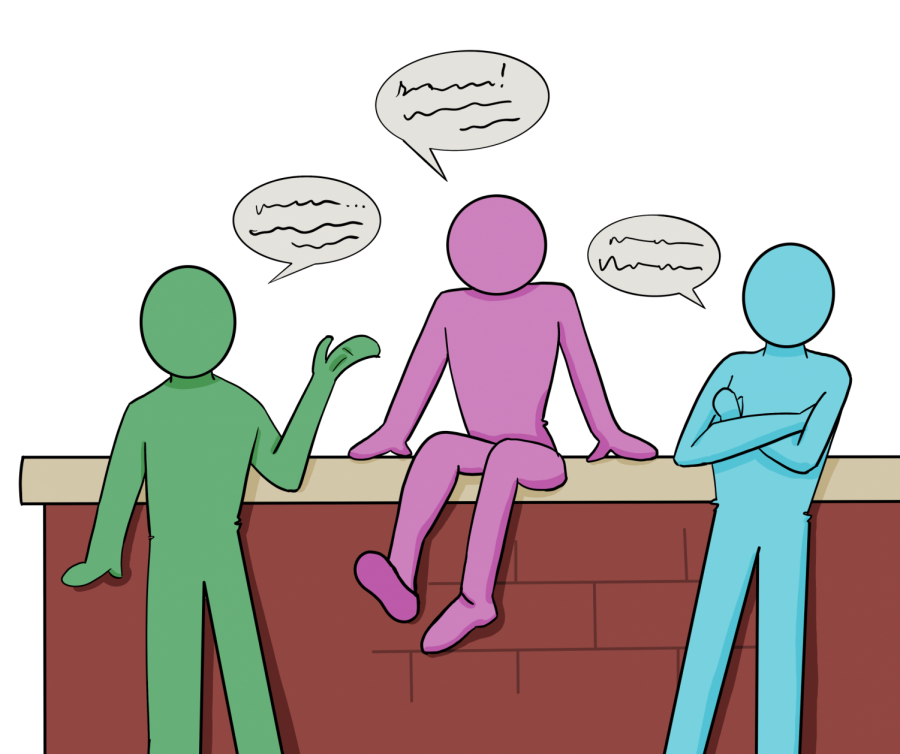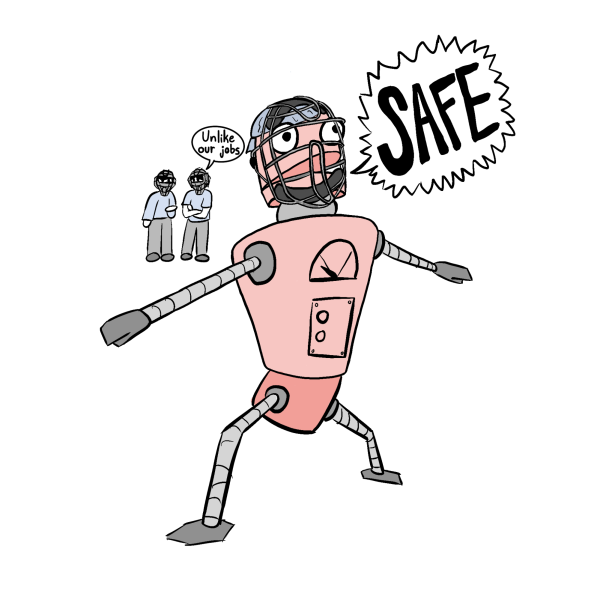Do You Even Like Your Friend Group?
We can lose sight of ourselves by looking too much at others
“You become the average of the 5 people closest to you.” Whether you believe in this statement or not, it’s worth your time to reflect on who has the largest influences on how you carry on with your daily life. Although your inner circle can be limited by unchangeable factors in your social environment, it is ultimately your choice who you surround yourself with and thus get influenced by.
I bring this topic up because I see shifts in how I live based on who I spend time with, and because of how often I still hear about “friend group drama” from students here. My freshman year, I really did not expect to see high school-level clique-iness and drama continue on into college. It is more prevalent here as a part of Trinity culture, especially considering our demographics — we are a 2,500-student private institution, where everyone knows and gossips about each other. I was told back then that I would “settle into” a friend group when I was an upperclassman.
As someone who prefers to socialize in more intimate, smaller settings, finding a friend group was not a priority in my time here. However, I see how it would be beneficial or important for others to subscribe to a group of people during college, and I have witnessed groups naturally form and fall apart. It is also interesting to see how people start becoming each other, picking up each other’s mannerisms and word-habits, opening up their beliefs and world views. This is all healthy and necessary in finding and changing who you are, but it is harmful to your own mentality when you begin identifying and shaping yourself through a group of friends and not as an individual.
This all sounds quite dramatic, but it is hard to see at what point the negative influence of your peers overrides their positive influence, and we often underestimate the control we have over our own lives. Growing up before college, I never questioned who I was influenced by and stayed in toxic friendships out of comfort of habit and the fear of being alone. I now see how the most miniscule choices (even if they didn’t seem like choices) have led to where I am. I don’t necessarily regret my past decisions, but I want to be more mindful about how and with whom I spend my time. And I hope others do the same.
Hearing others complain and gossip now, drama seems very trivial and honestly, a waste of my own time and theirs as well. Some see ranting as a bonding experience where they are able to process their feelings through talking and getting feedback. However, it is often excessive and pointless when you’re not searching for a solution. Hearing stories from an outsider’s perspective, groupthink and peer pressure, are all very real and damaging.
Cliques and groups seep into the workplace setting. We were taught to be “team players” because it is an asset in the work field, but collaborative work is markedly different from group conformity. Being comfortable and confident in our own selves and ideas will certainly bring more to the table than conforming to others. In this piece, I highlight the authority of the individual while pointing out the dangers of individualism during the pandemic. I simply hope that I and others trust our gut and stay true to our feelings, which can be trampled over by the opinions of others, and that we consider to be what we truly want from life.

I'm a senior Computer Science major and a Classical Studies minor from Newton, North Carolina with a passion for art. I also work at the Center for Experiential...










